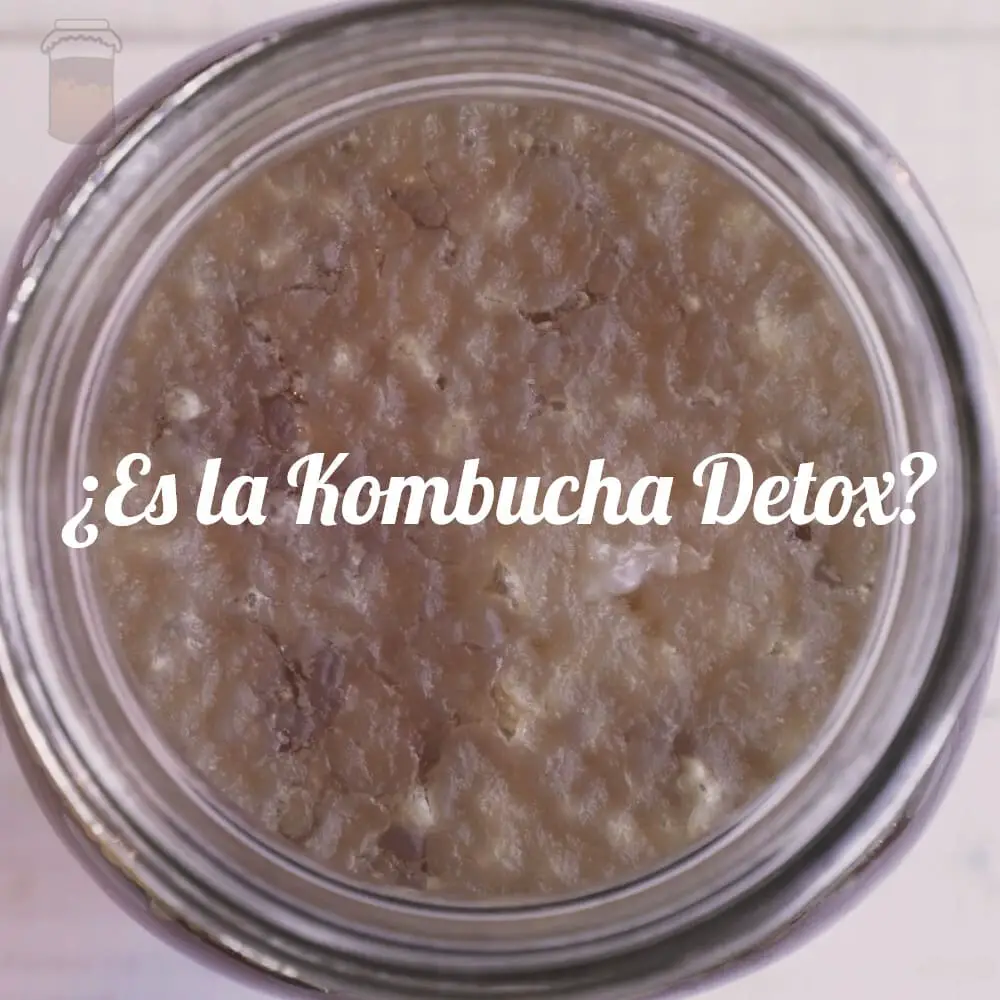Many factors are strongly related to the environment where we could be in contact with a large number of pollutants that cause harmful effects on health.
Maintaining a healthy lifestyle involves following a series of guidelines to reduce this exposure and production of toxins. One is a diet where natural foods rich in antioxidants and the proper nutrients could reduce the harmful effects on health.
Kombucha has been seen as a natural food with a great capacity to cleanse the body, given its composition. We will detail how correct this statement is in the subsequent headings.
What antioxidant compounds are in kombucha?
Kombucha contains various nutrients, some with antioxidant functions that would help keep you healthy by helping eliminate toxic elements from the environment or internal metabolism, thus preventing the development of degenerative diseases.
Kombucha tea contains vitamins E and C, the primary and most prevalent antioxidants in food, and phenolic compounds transformed into catechins, flavonoids, and other compounds beneficial to health. They also have a variety of amino acids, being theanine one that has a high antioxidant effect.
When free radicals (peroxide anions, lipid radicals, hydroxyl radicals, reactive oxygen species) accumulate in excess within the body, they begin to damage tissues, leading to the development of diseases, mainly neurological such as Parkinson’s disease, Alzheimer’s, and ischemic brain injury.
As long as you consume foods with good sources of antioxidants like kombucha, you can decrease the risk of developing neurodegenerative diseases with age or reduce the aging process, and kombucha is one of those foods. [1]
What is the main detoxifying agent in kombucha?
During its fermentation, a high amount of glucuronic acid is attributed to an essential role in removing toxic substances from the body in a complex process called detoxification, functioning as a form of medicinal or physiological elimination. [2] [3]
Many environmental pollutants can increase oxidative stress in the body; one is TCE (trichloroethylene), demonstrated as a liver and kidney carcinogen in humans and animals.
TCE causes an imbalance between the presence of cellular antioxidants and the production of free radicals in the body, causing oxidative stress, added to the free radicals present in the environment, leading to cell death and the development of degenerative diseases.
The potent antioxidant capacity of kombucha can reduce oxidative stress, and one of its main allies is glucuronic acid which binds to toxic substances to facilitate their elimination by the liver. In addition, its acetic acid content can also collaborate in eliminating TCE, thus protecting the renal and hepatic systems. [3] [4]
A Little Context: The Liver and Detoxification
The liver has several vital functions, but we will focus on the detoxification of the body through glucuronic acid, which through a process of glucuronidation, binds to toxins for subsequent elimination through bile in the intestine or by the kidneys. [3] [5]
The glucuronic acid of kombucha is very beneficial as an aid to liver functions, improving its capacity and offering some acids and enzymes formed during fermentation that closely resemble those produced by the body to eliminate toxic substances.
In this way, it could help preserve the liver and decrease the risk of developing cancer. [3]
There is also a theory that kombucha may protect liver cells from lipid toxicity and reduce inflammation and liver fibrosis. However, these effects have so far only been demonstrated in mice. [6]
Prevention of kidney damage
Kombucha can reduce kidney damage caused by ECT, heavy metals, and other toxic substances, facilitating the elimination of these through the kidneys and allowing tissues to recover from any injury caused by the accumulation of environmental pollutants.
The acetic acid in the drink can be combined with toxins to make them more soluble and increase their elimination in the urine, so it may be beneficial for people with kidney failure. [3] [7]
Can it promote the elimination of bilirubin?
Glucuronic acid participates in eliminating about 90% of all free bilirubin, so increasing its availability in the body will help prevent its toxic effects that can inhibit enzymatic functions in tissues; kombucha may favor this.
Bilirubin is a pigment from the metabolism of hemoglobin released when old red blood cells are degraded. If it is not eliminated, it will accumulate in excess in the body’s tissues, causing jaundice and malfunction of the organs, leading to disease and death. [3] [5] [8]
Kombucha provides a good glucuronic acid content, helping the liver detoxify bilirubin and other toxic pigments produced in the body, helps make them more soluble to facilitate their excretion by the billis into the intestine and decrease their reabsorption in it. [5]
Where would its consumption be indicated?
It is recommended that kombucha be consumed as part of the daily diet, mainly by people exposed to high oxidative stress. Still, if it does not regulate consumption properly, it could have serious consequences.
Kombucha has a high content of polyphenols that give it potent antioxidant properties, so it should be consumed in cases of people with a lot of mental and physical stress; being very beneficial if it is prepared with green or red tea. [1]
It appears that kombucha may also have a protective effect against aflatoxin B1, a food substance with carcinogenic potential that can be absorbed by saccharomyces in the drink and converted into products of low toxicity. [9]
It has also been proven that kombucha tea can inhibit the production of Patulin by three species of fungi in a liquid medium and apples, so it is possible that it helps prevent poisoning and can work as an alternative to biopreservatives to prevent their formation in food. [10]
What would be the precautions for a detox process with kombucha?
Using kombucha for a detox process can be beneficial as long as you do not overdo it, do not make unsuccessful changes in the diet, and be aware of your medical condition since the detox diet or kombucha itself could have an adverse reaction in your body.
The process of cleansing the colon can generate side effects that would be serious in people with a history of gastrointestinal, heart, and kidney disease, severe hemorrhoids, and colon surgery. Also, if you have diabetes, you should consult your doctor to verify the effects of consuming kombucha for this diet.
Another aspect to consider is its content of antioxidants and glucuronic acid. If you consume too much kombucha, the liver may be saturated with toxic conjugates, and being more than it can handle will generate a state of liver toxicity.
In addition, if you prolong the fermentation to obtain more antioxidants, you will also increase the acidity of the drink, which would be dangerous for people with ulcers and gastrointestinal reflux.
You should also check the type of kombucha you are consuming since, depending on its composition, it could have a laxative effect which would be very dangerous due to the severe dehydration and electrolyte imbalance that this would cause.
Other related content
[1] https://www.ncbi.nlm.nih.gov/pmc/articles/PMC7278673/
[2] https://www.ncbi.nlm.nih.gov/pmc/articles/PMC2788564/
[3] https://www.hindawi.com/journals/ecam/2020/4397543/
[4] https://www.ncbi.nlm.nih.gov/pmc/articles/PMC3621199/
[5] https://www.tandfonline.com/doi/full/10.1080/19476337.2017.1410499
[6] https://pubmed.ncbi.nlm.nih.gov/31086120/
[7] https://www.ncbi.nlm.nih.gov/pmc/articles/PMC2788564/
[8] https://www.sciencedirect.com/topics/biochemistry-genetics-and-molecular-biology/glucuronic-acid
[9] https://www.mdpi.com/2072-6651/13/1/46/htm
[10] https://www.tandfonline.com/doi/full/10.1080/19476337.2015.1096828

